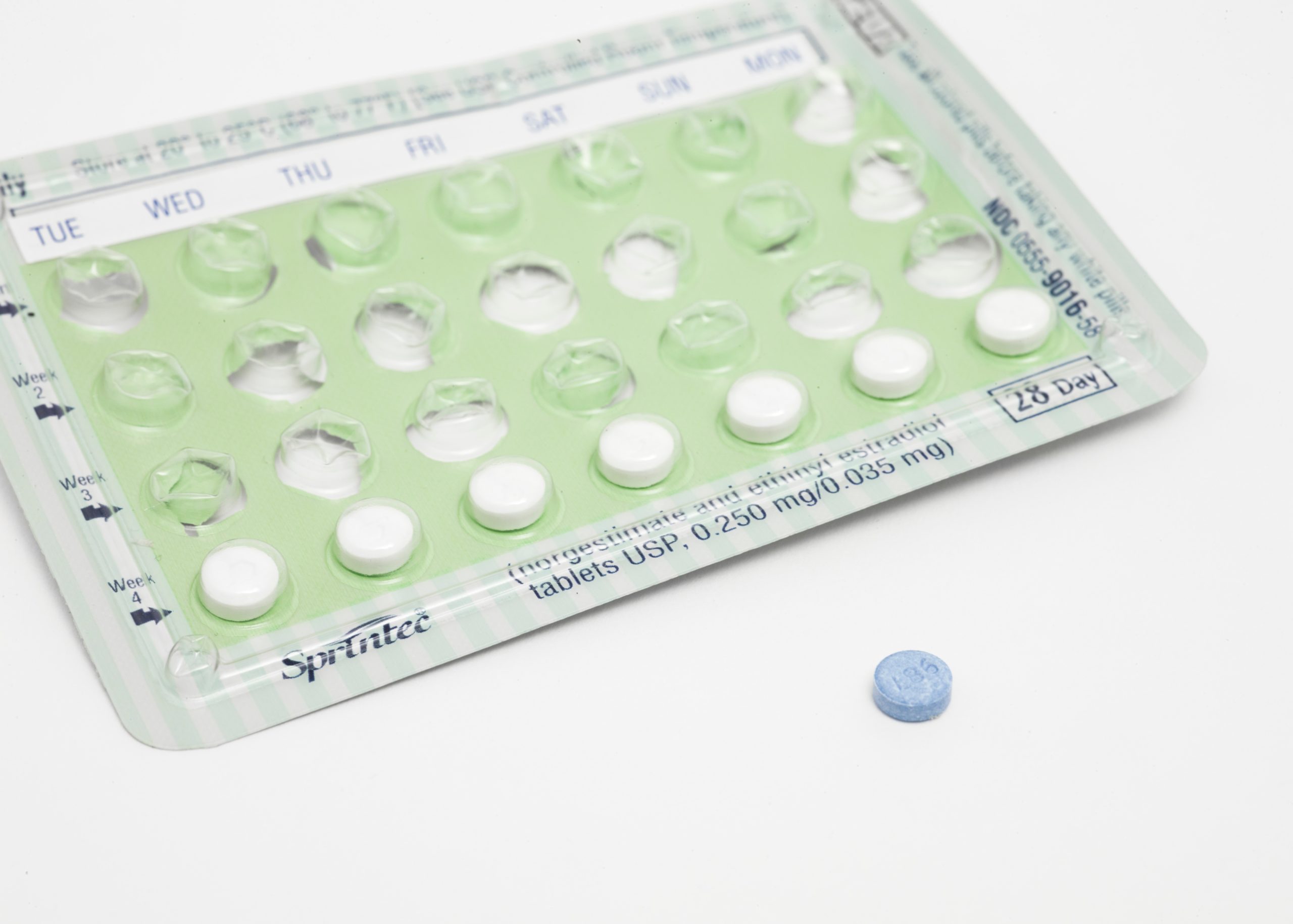From 2015 to 2017, approximately 65 percent of women ages 15 to 49 in America used contraception, according to the Center for Disease Control.
Whether you are taking birth control for contraceptive purposes, to regulate your period or improve your skin, you have likely experienced an unwanted side effect from one of the hormonal methods, such as the IUD, pill, patch, ring or implant. Although physical side effects like nausea, dizziness and blood clots are prevalent, some of the most common side effects of birth control are actually mental. Almost 50% of women who go on the pill discontinue use in less than a year because of intolerable side effects, the most frequently cited being unpleasant changes in mood. Many women report depression, anxiety or feeling crazy after using the pill.
Sex hormones, such as estrogen and progesterone, strongly influence the nervous system and brain by reducing neurotransmitter activity and affecting specific brain regions. Birth control pills consist of one or two synthetic hormones that go into the bloodstream and directly impact their mood. These hormones are pumped throughout women’s bodies and affect them mentally and physically. If you already have anxiety or depression, certain birth control pills can intensify these changes in mood.
A study performed at UCLA found that the pill affected mental states by altering the brain. Two parts of the brain in particular revealed changes: the posterior cingulate cortex, which evaluates one’s internal state of mind, and the lateral orbitofrontal cortex, which regulates emotions in response to external stimuli. Both regions appeared thinner in the brains of women on the pill. The result of this is heightened risks of abnormal emotional functioning.
Another experiment done in Denmark, titled Association of Hormonal Contraception With Depression, found that women on hormonal contraceptives were 50 percent more likely to be diagnosed with depression six months after getting a prescription, compared with women who were not prescribed hormonal contraceptives. The same group performed a later study which found that, compared to a group not on hormonal contraceptives, those using hormonal contraceptives were twice as likely to attempt suicide and three times more likely to successfully commit suicide.
Thus, it is not surprising that birth control pills regularly become discontinued due to lawsuits. If you have been on Yaz, Yasmin or one of a similar generic, you may be familiar with this. Over 19,000 lawsuits have been filed against these brands due to patients experiencing fatal blood clots, strokes, heart attacks and gallbladder issues. In 2012, the Food and Drug Administration stated that drospirenone, one of two hormones found in these pills, may increase a person’s risk of blood clots up to three times compared to the risk of progestins, such as levonorgestrel, which is used in older pills.
A frustration that I have personally encountered is my health care providers not taking these side effects seriously. When my dermatologist first prescribed me the pill, she assured me it could not actually cause changes in my mood or worsen conditions like anxiety. She was wrong. My mood before the pill and while on the pill were like night and day, and the only thing I changed in my routine was the medication. I have also had pharmacists give me a different pill than usual, saying it was an interchangeable generic of my usual pill but promising the medicine was the same. I still experienced new side effects. I wish my doctors and pharmacists were more aware of the pill’s effect on mental health and how even slightly changing ingredients in medications can affect your mind and body. So, if you feel like something has changed and aren’t sure why, there is a chance it could be because of your birth control.
Thankfully, there are several other options out there. I personally opted for an IUD, or intrauterine device, after many failed attempts at the pill. I love my IUD because the hormones are released locally in the uterus, so the chemicals are only in one part of my body. I felt much more like myself when I switched from the pill to an IUD. There is also a non-hormonal IUD option for anyone who prefers to avoid artificial hormones or has had negative experiences with hormonal contraception in the past.
I have a real gripe with the fact that women have to deal with this. We endure all of these side effects and risks just to not get pregnant. Instead of threatening our reproductive rights, people should realize what a struggle it is to bear the responsibility and burden of being a woman. While men only have to worry about getting condoms (sometimes), women bear the brunt of dealing with all of the issues that automatically come along with being female.
- All About the Enneagram - March 25, 2021
- The Toxic Relationship Between Us and Social Media - November 12, 2020
- The Reality of Pandemic Relationships - October 15, 2020

